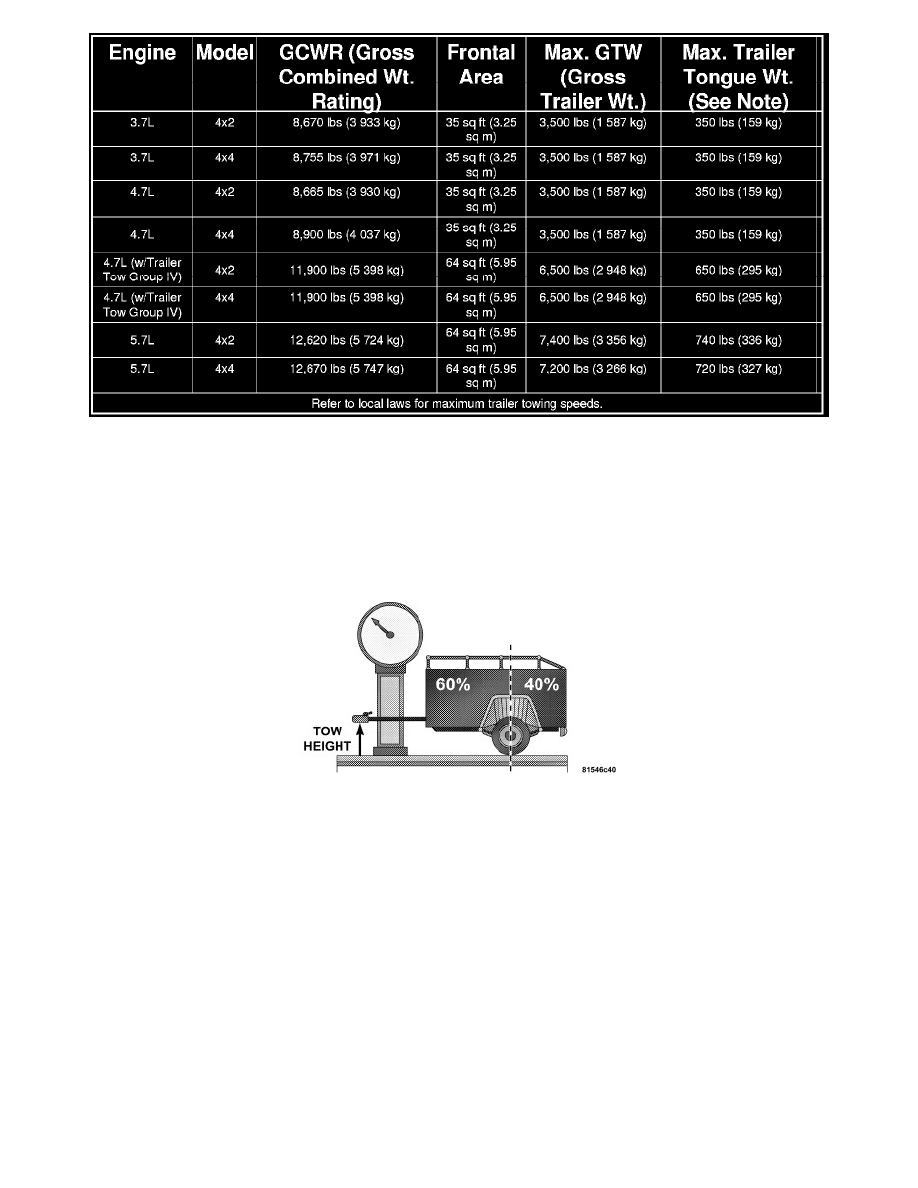Commander 2WD V8-4.7L Flex Fuel (2009)

NOTE: The trailer tongue weight must be considered as part of the combined weight of occupants and cargo, and should never exceed the
weight referenced on the Tire and Loading Information placard. Refer to the "Tire-Safety Information".
Trailer and Tongue Weight
Always load a trailer with 60% to 65% of the weight in the front of the trailer. This places 10% to 15% of the Gross Trailer Weight (GTW) on the tow
hitch of your vehicle. Loads balanced over the wheels, or heavier in the rear, can cause the trailer to sway severely side-to-side which will cause loss of
control of vehicle and trailer. Failure to load trailers heavier in front is the cause of many trailer accidents.
Consider the following items when computing the weight on the front/rear axles of the vehicle:
-
The tongue weight of the trailer.
-
The weight of any other type of cargo or equipment put in or on your vehicle.
-
The weight of the driver and all passengers.
NOTE: Remember that everything put into or on the trailer adds to the load on your vehicle. Also, additional factory-installed options, or
dealer-installed options, must be considered as part of the total load on your vehicle. Refer to the Tire and Loading Information
placard for the maximum combined weight of occupants and cargo for your vehicle.
Towing Requirements
To promote proper break-in of your new vehicle drivetrain components the following guidelines are recommended:
CAUTION:
-
Avoid towing a trailer for the first 500 mi (805 km) of vehicle operation. Doing so may damage the vehicle.
-
During the first 500 mi (805 km) of trailer towing, limit the speed to 50 mph (80 km/h).
Perform the maintenance listed in "Maintenance Schedule." When towing a trailer, never exceed the GAWR, or GCWR, ratings.
